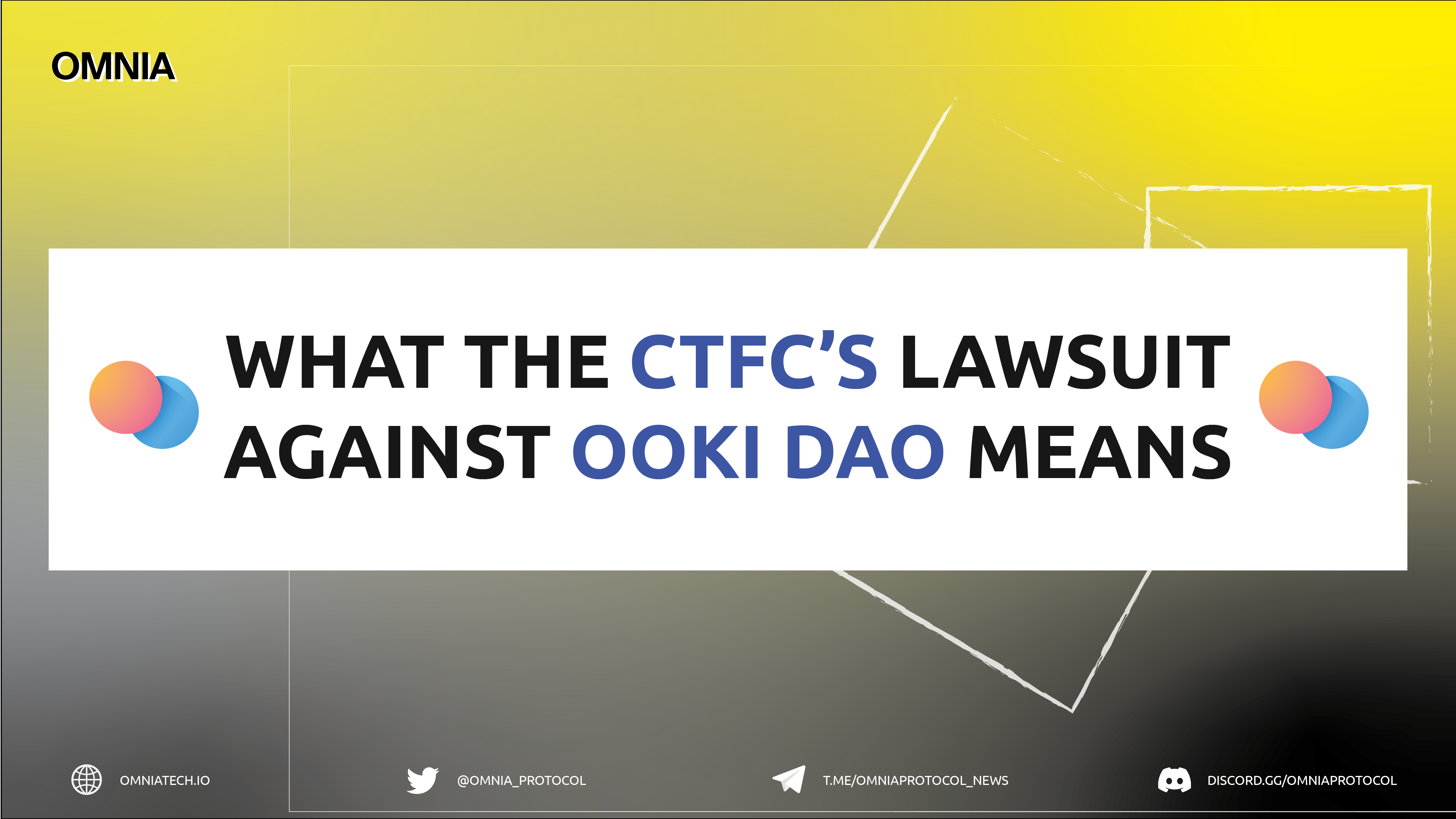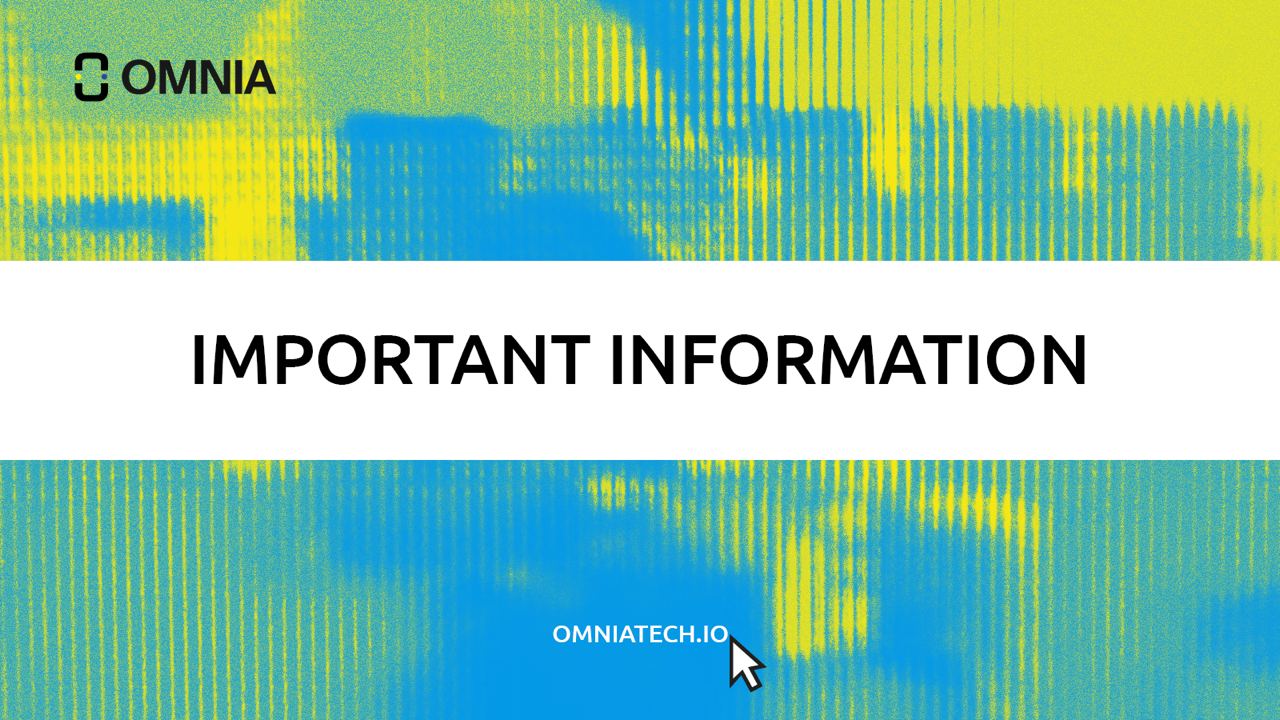
What the CFTC’s Lawsuit Against Ooki DAO Means
The US SEC is not the only regulatory body extending its mandate into the crypto-verse. On September 22nd, The Commodities Futures Trading Commission (CFTC) announced that it had charged bZeroX, LLC and its founders, Tom Bean and Kyle Kistner, with the following:
- illegally offering leveraged and margined retail commodity transactions in digital assets
- engaging in activities only registered futures commission merchants (FCM) can perform
- failing to adopt a customer identification program (AML/KYC) as part of a Bank Secrecy Act compliance program, as required of FCMs
The CFTC also ordered them to pay a fine of $250k and ‘cease and desist’ from further violations.
The CFTC Charges Ooki DAO With the Same
The CFTC went a step further and charged the successor of bZeroX, Ooki DAO, with the exact charges for violating the same laws as the above three respondents. The CFTC is therefore seeking ‘restitution, disgorgement, civil monetary penalties, trading and registration bans, and injunctions against further violations of the CEA and CFTC regulations.’
Ooki DAO was created as a decentralized solution to the centralized bZeroX. In summary, Ooki DAO is being charged because it was a continuation of another entity that broke CFTC regulations.
Why the Charges Against Ooki DAO Matter
The charges against Ooki DAO are the first ever by a major regulatory body against a decentralized autonomous organization. The wording of the charges by the CFTC also hints that every participant of Ooki DAO, or anyone who has held its tokens, is potentially liable for the three charges mentioned.
The CFTC stated, ‘The order finds the DAO was an unincorporated association of which Bean and Kistner were actively participating members and liable for the Ooki DAO’s violations of the CEA and CFTC regulations.’
The reality of the CFTC going after a DAO and its participants has had a ripple effect on other decentralized autonomous organizations as some delegates are considering quitting their roles.
But the CFTC might have difficulty going after individual participants of the Ooki DAO. The regulatory body might charge it as an unregistered cooperation or company. Members of the DAO will consequently have to decide whether to initiate a proposal to hire lawyers to defend it against the CFTC. Such a scenario will also be a first for the crypto industry.
What Do The Charges Mean for Decentralization?
The charges against Ooki DAO are not targeting decentralization directly. They are targeting the processes used to create the DAO and the continuation of ‘illegal’ trading activities through Ooki DAO that could have been avoided ahead of time.
Tom Bean and Kyle Kistner believed that transforming bZeroX into a DAO meant that no regulatory body would go after the latter as it was a decentralized entity. However, it was a misstep. CFTC’s Acting Director of Enforcement, Gretchen Lowe, explained that existing laws and regulations that apply to traditional business structures also apply to DAOs operating in the United States.
She said, ‘Margined, leveraged, or financed digital asset trading offered to retail U.S. customers must occur on properly registered and regulated exchanges in accordance with all applicable laws and regulations. These requirements apply equally to entities with more traditional business structures as well as to DAOs.’
Ooki DAO Founders and Members Could Have Mitigated Such Issues Ahead of Time
Ms. Lowe’s statement is an eye-opener because the charges against Ooki DAO might have been mitigated ahead of time by its founders and early community members.
The laws and regulations behind the CFTC’s and the SEC’s enforcement mandates are available in the public domain. Some research and perhaps legal advice beforehand could have prevented the situation from escalating to its current levels.
Walt Disney, for example, recently advertised that it was looking to hire a corporate lawyer with an understanding of transactions ‘involving emerging technologies, including NFTs, blockchain, metaverse, and decentralized finance.’
The almost 100-year-old company is mitigating future legal hurdles by hiring an expert to navigate the complexities of compliance and regulation.
Due Diligence is Recommended for Blockchain-based Projects
Upcoming and existing projects in the crypto, DeFi, NFT, and general Web3 industries should therefore make an effort to ensure they are not breaking existing laws and regulations by continually carrying out some level of due diligence.
Due diligence in the crypto and blockchain industry involves the standard steps, including research, that a business takes to avoid committing an offense down the road when it launches a product or service.
Such preventive measures by founders will provide a safe environment for developers and community members who will not have to worry about being prosecuted down the road for breaking existing laws or if malicious actors use their product or solution, as was the case with Tornado Cash.
OMNIA Provides Compliance Solutions
The OMNIA Protocol can ease some of the compliance challenges existing, and new blockchain-based projects face.OMNIA complies with existing personal information protection regulations and laws such as the GDPR and adheres to regulations such as Anti-Money Laundering and Countering the Financing of Terrorism (AML/CFT).
The team is also monitoring the upcoming global regulations, such as the Markets in Crypto Assets bill (MiCA) and Transfer of Funds Regulation (TFR) bills in the EU, to determine their impact on the industry and adjust accordingly.
In addition, the OMNIA team is aware that malicious actors often use blockchain technology for illegal activities such as tax evasion, money laundering, and other non-financial crimes. The team is committed to addressing such concerns and has implemented strict measures at the privacy relayers dAPI gateways that act as entry points to blockchain networks. OMNIA automatically rejects the submission of transactions linked to illicit activities or those tied to any sanctioned entities, thus protecting any blockchain-related project with proper due diligence.


